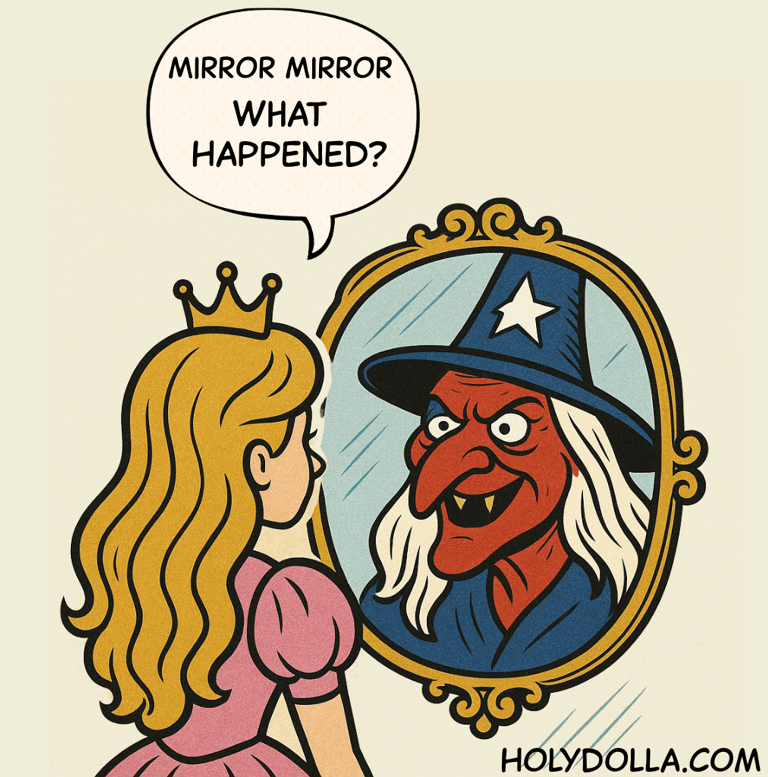Does America's Image Drive its wealth?
Are Bad Vibes costing us real money? by Peeved Pope Jonh 35
8/7/20253 min read


My dear brothers and sisters in the congregation of capitalism, democracy, and decent haircuts—can I get a “Jack yes!”
I come to you not as a ghost of Camelot, but as a fully licensed preacher of presidential likability! Yes Lord, I didn’t just bring missiles to the table—I brought charm, cheekbones, and approval ratings that made even Elvis blush!
Now listen—America’s power ain’t just in our military or money. No sir. It’s in our smile, our swagger, and our Saturday Night Live cameos.
You can’t bomb your way to a trade deal, and you sure as sugar can’t sanction your way to a good Yelp review from Europe.
The Bible says faith moves mountains. But I say, likability moves markets.
When the world likes you, they'll cut you a deal, invite you to the summit, and maybe even let you host the Olympics. Hallelujah!
But if you come across like a grumpy Walmart manager with nuclear codes—well, bless your heart, but you ain’t getting invited to brunch in Brussels.
Please consider some of the thoughts from the Holy Dolla contributors Below. 👇
🌎 Does America’s Image Drive Its Wealth?
Does Likability Equal GDP?
🧠 1. The Power of Perception in the Global Economy
America isn’t just a country—it’s a brand.
That brand is built on ideals: freedom, innovation, democracy, culture.
For decades, that image made the U.S. the default partner in global business, diplomacy, and investment.
This “image capital” translates into economic advantage: smoother trade, more trust, more deals, and strong demand for the U.S. dollar.
💵 2. How Likability Converts into Real Wealth
Tourism, foreign students, and international investments all flow toward countries seen as stable, ethical, and attractive.
U.S. universities host over a million international students annually, adding ~$44 billion to the economy. This depends on trust in the U.S. experience.
The U.S. dollar dominates global reserves largely because of belief in U.S. institutions—not just interest rates.
A nation that’s liked gets better terms, whether in borrowing, bidding, or branding.
🆘 3. America’s Image Is Slipping—and So Is Its Advantage
In 2025, U.S. global favorability dropped more than 20% in key allied nations (Pew, Ipsos).
Confidence in American leadership fell in Europe, Latin America, and even Southeast Asia—regions critical to global trade.
Reasons for the drop:
Political dysfunction & polarization.
Backing controversial foreign policies (e.g. Gaza support).
Abandoning global agreements (climate, trade).
Aggressive tariff and sanction strategies alienating allies.
🐉 4. Meanwhile, China Is Stepping In
China has increased its favorability in regions where U.S. image has declined.
Through Belt & Road projects, strategic diplomacy, and no-strings-attached infrastructure loans, China is building trust where America is burning it.
In Africa, Latin America, and parts of Asia:
China is winning infrastructure and energy deals.
Local populations view China as less judgmental—and more predictable.
Many now see China as a more consistent partner than the U.S.
🧾 5. Real Deal Impacts
In the last five years, China has outbid U.S. companies in key global contracts, especially in:
African telecom & transportation
Latin American lithium & mining
Southeast Asian port construction
When America’s image falters, its private sector loses leverage—reputation can close (or kill) billion-dollar deals.
🛠️ 6. Restoring the Image = Reclaiming the Advantage
To protect its wealth, the U.S. must:
Invest in global trust—not just military or trade pressure.
Lead on global challenges: climate, health, digital ethics.
Avoid foreign policy double standards—and back up ideals with action.
Strengthen alliances, don’t sideline them.
Fix internal dysfunction—chaos at home weakens credibility abroad.
📈 Conclusion: Yes—Likability Drives Wealth
America’s image is not a side effect—it’s a core asset.
Like a blue-chip stock, it generates dividends: trust, trade, capital, and cooperation.
As that image fades, so does the influence.
If likability is leverage, then reputation is GDP—and right now,
China is gaining, while the U.S. is spending down its social credit line.
So I say unto you:
Build bridges, not border taxes.
Shake hands, not fists.
And remember: the global stage ain't Tinder—if the world swipes left, you're sleeping alone, honey!
For I have seen the promised land—where America's flag flies not out of fear, but because people actually like us! 🤗
Where soft power means more than soft-serve, and our exports include hope, help, and hot dogs.
And if you ever doubt the power of likability, remember—
I beat Nixon with good lighting and a grin.
You can too, America. You can too.
May your global trust scores rise,
May your currency stay strong,
And may your memes be favorable.
Amen. Praise Dow. Pass the social capital. And God bless the United States of Applause. 🎤🇺🇸





